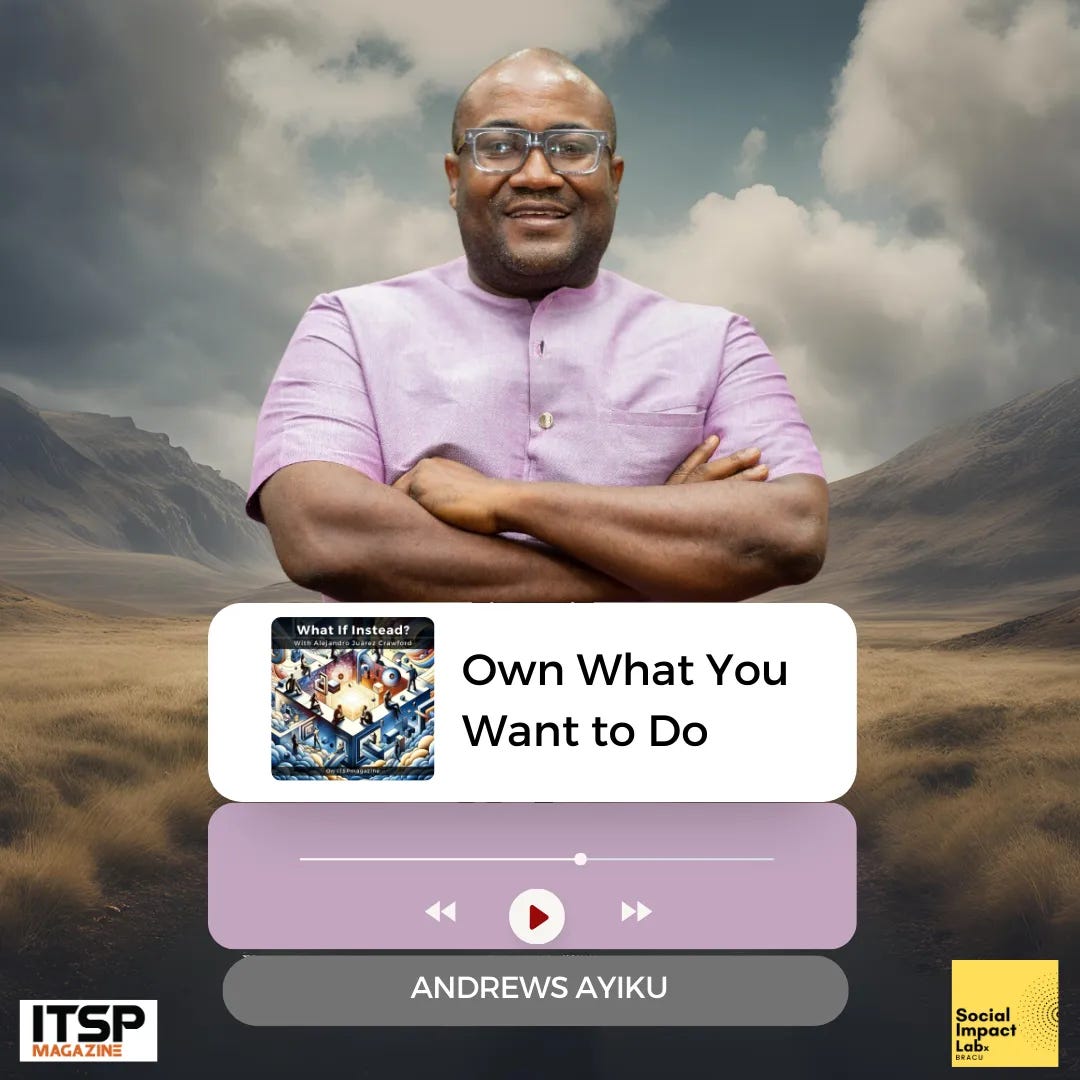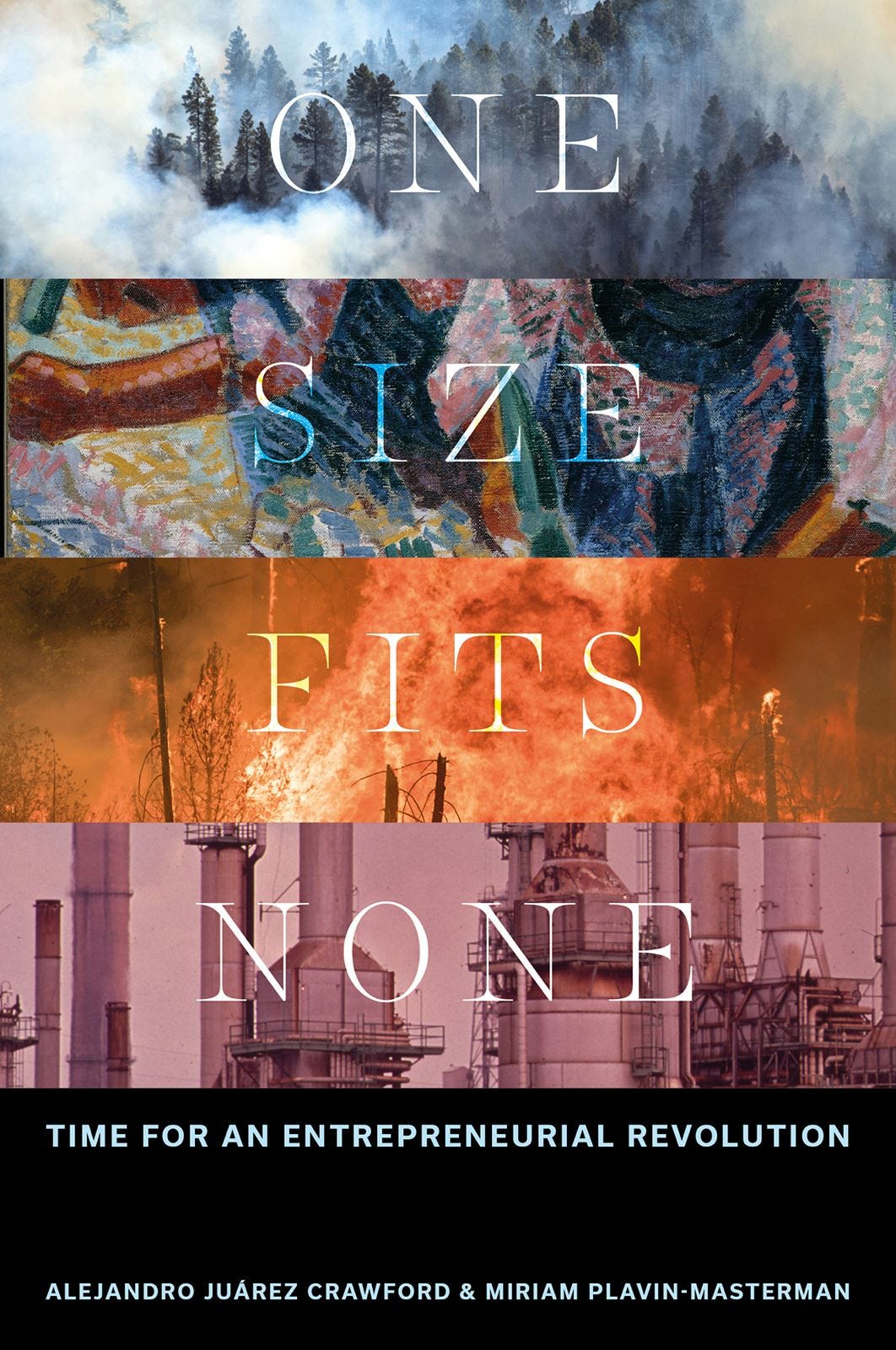Nobody Else Can Do It For Us
Dr. Andrews Ayiku on Building Systems that Meet People's Needs
“I let the community, the stakeholders, the opinion leaders own this. So it's easier for them to call for a meeting. It's easier to assemble them.” – Dr. Andrews Ayiku
Our new book One Size Fits None: Time for an Entrepreneurial Revolution arrives this fall.
In it, we quote Tuck School of Business Professor Scott Anthony about what it means to create “the surface area for serendipity to strike.”
According to Scott Anthony, professor at the Tuck School of Business, we don’t simply aim for opportunities. Instead, they have to hit near us. The key is to clear an area large enough that when opportunities fall from the sky, as eventually they will, they land on it. Anthony cites the example of Julia Childs, the chef, TV personality, and writer: “Fortune smiled on Julia many times, but Fortune smiled because Julia followed the behaviors common to great innovators. She was intensely curious. She collaborated. She was a disciplined experimenter. She created the surface area for serendipity to strike." (Anthony, 2024)
In the book, we connect this idea to an interview with Dr. Andrews Ayiku in the very first episode of What if Instead?:
People are often willing to step up and innovate, even when no one opens doors. Dr. Andrews Ayiku, Lecturer and Small and Medium Enterprises Industry Coach at the University of Professional Studies, Accra, Ghana (UPSA), reflects: “You don't need much money to do this. You need a mindset, you need … devotion, you need your effort. You need to be committed to solve this social issue.”
It’s not that money doesn’t matter. It’s that we need to spread that money out, to seed the widespread experimentation required. To be responsive, Dr. Ayiku emphasizes, requires engaging a broad base. “I let the community, the stakeholders, the opinion leaders own this. So it's easier for them to call for a meeting. It's easier to assemble them.”
Click on the image above to listen to the full conversation. To enable more people to create solutions, the way Andrews has done, we’ve now launched Kickstarter to bring the book beyond academic audiences.
Backers can choose signed copies, t-shirts, participation in our book launch events, and workshops to help bring to your own community, school or organization the kind of experimentation Andrews describes.




